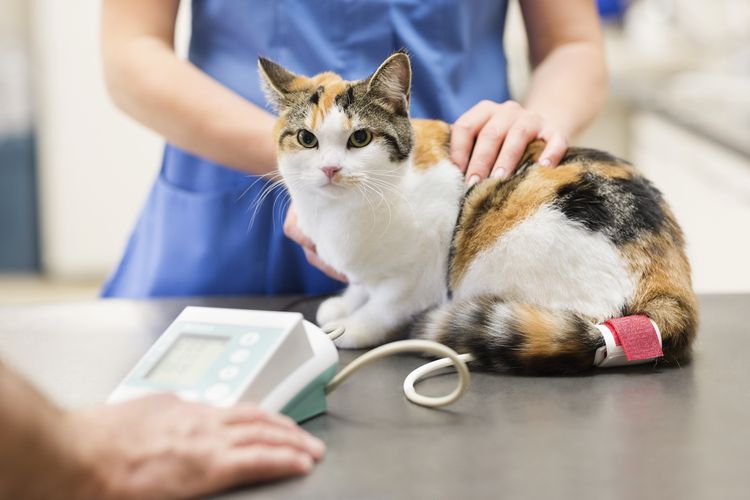
Is your cat losing weight? Unintended weight loss is usually a sign of an underlying health problem. Many owners think that weight loss is normal for senior cats, but this is not the case. It's important to take action if you notice unexplained weight loss in your cat. Find out more about the underlying causes for weight loss, how a diagnosis is made, and how this condition may be treated.
In many cases, cats lose weight when they are not eating enough. However, some diseases cause weight loss despite adequate food intake. Depending on the cause, weight loss may or may not accompany other signs of illness. Many health problems can cause weight loss in cats, some more serious than others.
Hyperthyroidism is a relatively common illness that most often affects older cats. Cats with hyperthyroidism produce too much thyroid hormone due to an enlargement of the thyroid gland. This enlargement is usually caused by a benign tumor that grows on the thyroid.
Common signs of hyperthyroidism include weight loss, increased appetite, and increased thirst and urination. Some cats also experience vomiting, diarrhea, and hyperactivity. Some will vocalize and act restless. Cats with hyperthyroidism may have coats that appear unkempt and greasy. Hyperthyroidism is treated with radioactive iodine or oral medications.
Chronic kidney disease is one of the most common illnesses seen in senior cats. The kidneys produce important hormones, filter out wastes from the blood, help regulate blood pressure, and facilitate the production of new red blood cells. When a cat's kidneys stop functioning properly, it leads to a variety of other issues.
Increased thirst and urination are among the first signs noticed when a cat has kidney issues, followed by loss of appetite, weight loss, and lethargy. Chronic kidney disease cannot be cured, often be medically managed with medication, diet change, and fluid supplementation.
Diabetes mellitus is another common ailment that can affect cats. This endocrine disorder affects the ability of the pancreas to produce insulin, a hormone needed to regulate blood glucose.
Signs of diabetes include weight loss, increased appetite, thirst, and urination, and lethargy. Diabetes is typically managed with insulin and a diet change. Other medications may be used. Some cats will even revert back to normal after several months of treatment.
Any issue in the GI tract can affect a cat's weight. First, GI problems can reduce appetite. Second, some issues prevent the GI tract from properly digesting food and absorbing nutrients, leading to weight loss. Some GI problems seen in cats include intestinal parasites, inflammatory bowel disease, pancreatitis, and other pancreatic issues, and even cancers of the GI tract.
GI issues may cause loss of appetite, weight loss, vomiting, diarrhea, lethargy, and more. Treatment of GI parasites may be as simple as deworming the cat. Other GI issues typically require medications and supportive care.
Oral and dental issues can cause extreme pain, decreasing appetite and leading to weight loss. Common dental problems in cats include periodontal disease, resorptive lesions, and tooth fractures. Some cats develop stomatitis, a painful inflammation of a cat's mouth and gums that may be immune-mediated.
Signs of dental issues include bad breath, drooling, pawing at the mouth, or even oral bleeding. The first step to treatment is for the vet to put your cat under anesthesia and do a professional dental cleaning, exam, and treatment as necessary. Some cats will need oral surgery and/or tooth extractions.
Like people, cats can get cancer just about anywhere in their body. Cancer may or may not be seen in the form of a tumor. Lymphoma is one of the common cancers seen in cats and it can live in the GI tract, mouth, lymphatic system, and more. Most forms of cancer will eventually cause general malaise, lethargy, pain, muscle wasting, appetite loss, and overall weight loss.
Cats can be very sensitive to changes in their home. Because they are often excellent at hiding outward signs of stress, they can experience bigger symptoms later on. Any environmental stressors can lead to anxiety and stress in your cat. Reduced appetite is a common sign of stress and will eventually lead to weight loss.
There are a number of other health issues that can lead to weight loss. If your cat has an underlying health issue, you may or may not notice other signs of illness. In addition, many diseases have similar symptoms, so diagnosis requires a veterinarian.
First, determine if your cat is actually losing weight. It is hard to tell if your cat is really losing weight if it happens gradually. If your cat has a lot of hair or used to be slightly overweight, then it can be harder to tell when weight loss has occurred. Sometimes, owners notice a cat has lost weight when they pick them up and they feel lighter. Other times they have pictures they can look at our can feel that they have lost weight when petting them.
To assess your cat's body condition, start by looking at your cat's body from above. At an ideal weight, there should be a tuck at the waist that is noticeable but not extreme. Next, run your hands along your cat's sides. The ribs should be palpable with a thin covering of fat. If the ribs feel very prominent and are visible, your cat is likely underweight.
If you notice your cat is losing weight, contact your veterinarian to determine the underlying cause.
The treatment for weight loss in cats depends on the cause. If you notice your cat is losing weight, your first step should be to schedule a vet appointment. Your vet will do a physical exam first. Next, lab tests and/or x-rays or imaging may be needed to determine the problem. Based on the findings, your vet may recommend medication, diet change, surgery, or other treatment.
If your vet gives your cat a clean bill of health, then the weight loss may be caused by inadequate food intake or some unknown or undetectable condition. Ask your vet for advice about feeding and environmental enrichment. If you can determine a source of stress for your cat, start by working to reduce that stress. Your vet can also recommend a diet that is right in nutrients and calories, potentially helping your cat gain weight.
If your cat's weight loss continues despite changes you make, then make sure to follow up with your vet about it. Your vet may refer you to a veterinary specialist for advanced diagnostics.
You can prevent weight loss in your cat by regularly monitoring body condition and visiting the vet regularly for wellness examinations. Cats are experts at hiding illness and injuries, but your vet may be able to detect a problem before it gets out of hand. Be sure to report any changes in your cat's behavior to your vet right away. It is much easier to treat a health problem in the early stages than to wait until your cat becomes very ill.
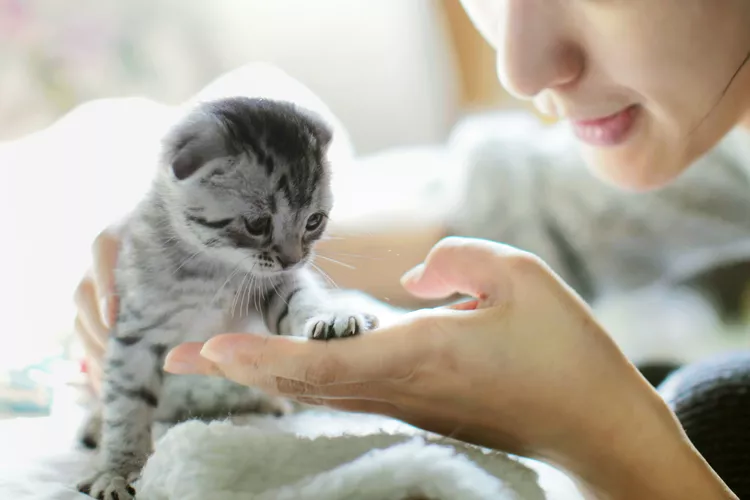
The First 30 Days With Your New Kitten
The first month is full of changes and excitement for a kitten in a new home. Find out what to expect and what you can do for your new feline friend.
How Old Is Your Cat in Human Years?
As a cat ages, there are often behavioral and physical changes too. Find out how to convert cat years to human years and what to expect at each stage.
What to Buy for Your New Cat: A List of Essentials
Before you bring your new cat or kitten home, there are a number of things to collect or buy so your cat will feel welcomed like a family member.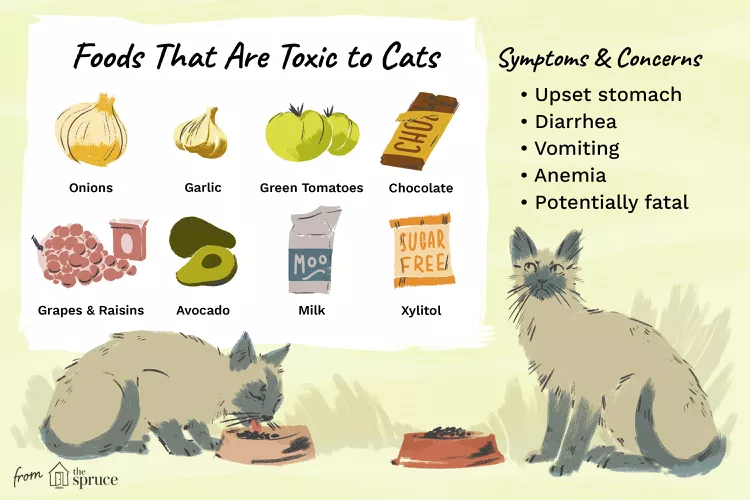
Human Foods That Are Poisonous to Cats
Many human foods are toxic to cats. Avoid feeding cats table scraps. Instead, feed a nutritious cat food created for their specific nutritional needs.
Cat Food Ingredients to Avoid
When checking the nutrition content of cat food, look for ingredients that are not healthy or show it is of poor quality. Avoid these 3 ingredients.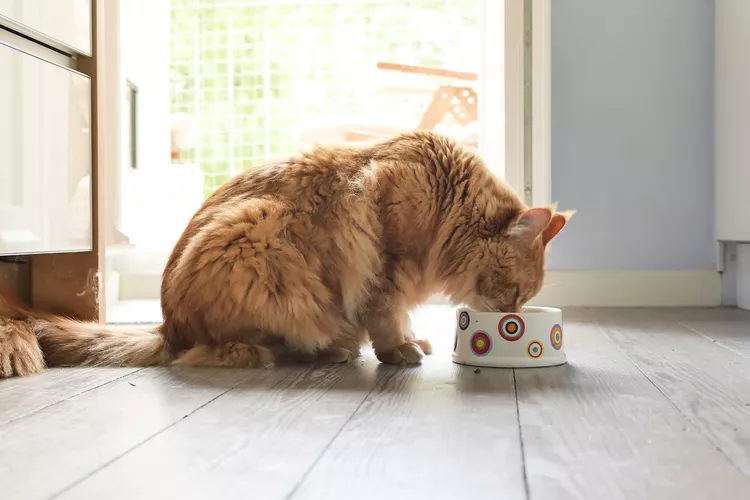
Should You Feed Your Cat a Raw Diet?
Learn the pros and cons of raw diets for cats, and find out how to choose a raw food diet for your own cat.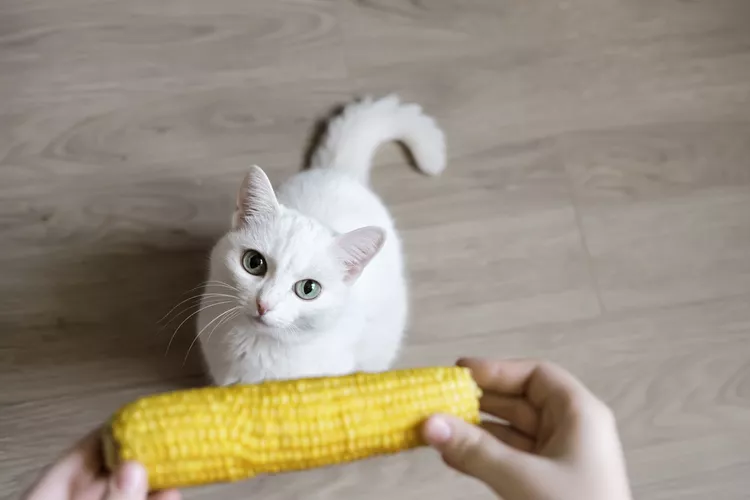
Can Cats Eat Corn? Here's What A Vet Thinks
Corn is a common ingredient in cat food and can be a safe treat for cats when fed in moderation. Find out more about how to safely feed corn to your cat.
10 Obscure, Little-known Canine Facts in Honor of National Dog Day
With National Dog Day upon us, it's time to celebrate everything about our favorite pets—even the weirder stuff. Here are 10 obscure facts about dogs you probably didn't know.
The Different Types of Pet-Friendly Workplaces
Discover the different types of pet-friendly workplaces and the benefits they offer employees. Learn how to create a pet-friendly workplace and the best practices for pet owners.
Exploring the Different Types of Pet-Friendly Beaches
Are you looking for pet-friendly beaches? Learn about the different types of pet-friendly beaches, their locations, and tips for visiting them with your pet.
Why Is My Dog Lethargic?
Lethargy can be a sign that something is wrong with your dog. Find out what may be causing this lack of energy and what you should do about it.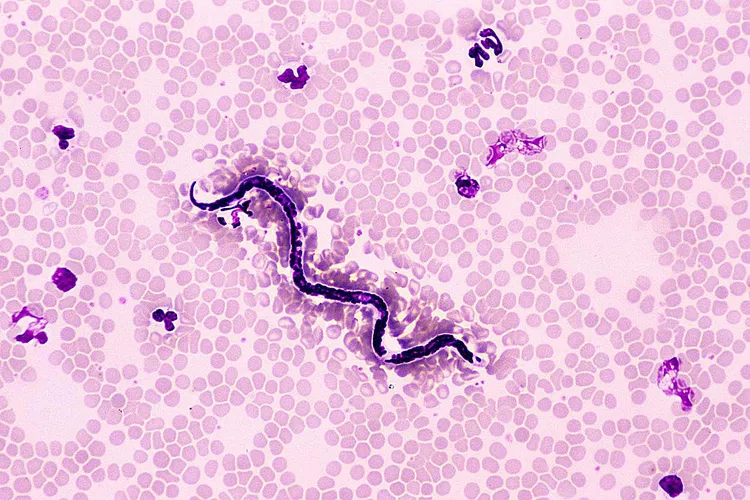
Medications to Prevent Heartworm Disease for Dogs
Heartworm disease is a serious risk for all dogs exposed to mosquitos. Find out about the products used to prevent Heartworm disease in dogs.
Can My Dog Eat Tomatoes?
You'll want to keep Fido out of your garden since the tomato plant is toxic, but you can safely offer him ripe tomatoes as a nutrient-packed treat.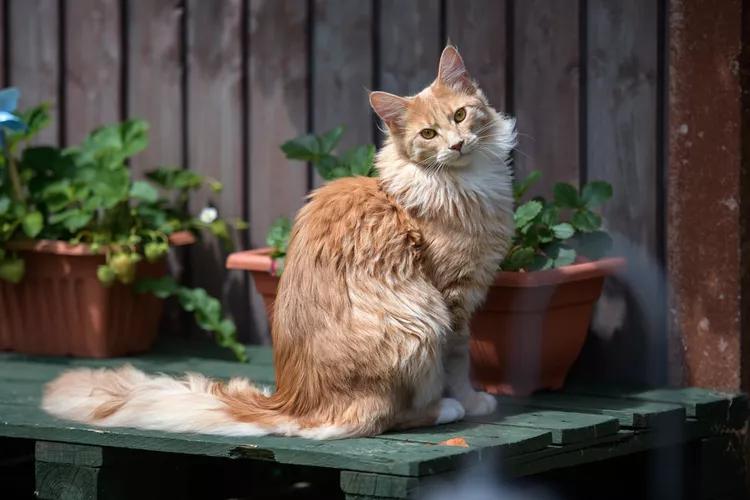
15 Best American Cat Breeds
Several cat breeds, including the American shorthair and Bengal, have their origins in the United States. Learn more about these American cat breeds.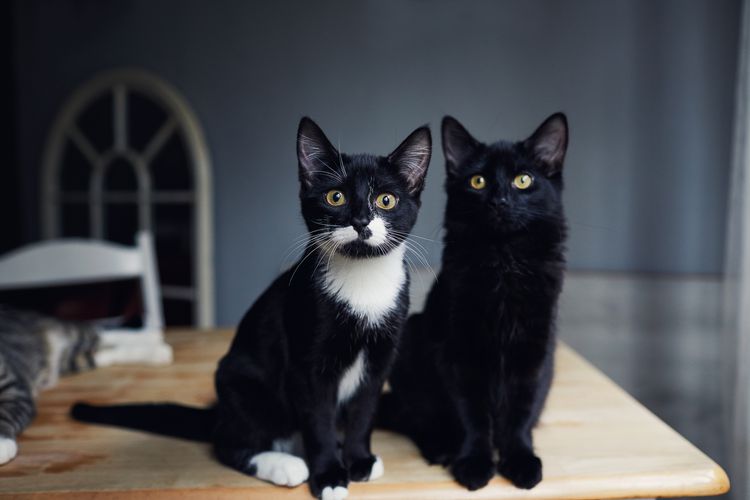
Why Do Cats Slap Each Other?
Cats can have some quirky behaviors—one of them being slapping each other. Why do they do this and what can you do to stop it?
Skye Terrier: Dog Breed Characteristics & Care
Learn all about the Skye Terrier, an elegant breed known for its friendly and even-tempered personality with classic terrier traits.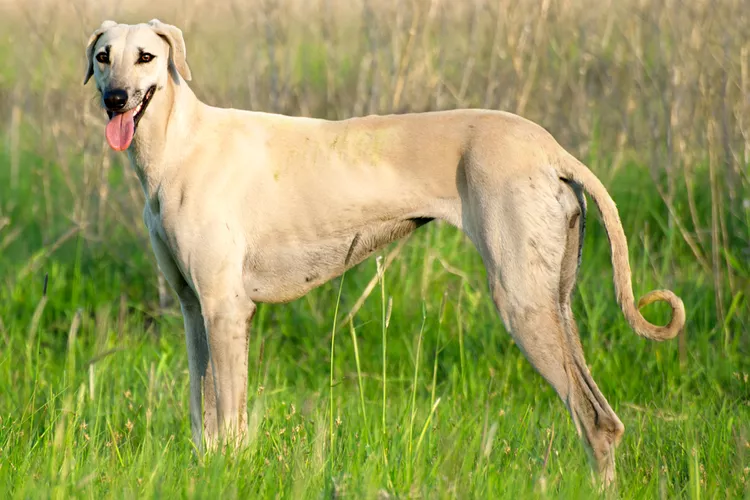
Sloughi: Dog Breed Characteristics & Care
Learn all about the Sloughi, an ancient dog breed known for its impressive running ability, slim stature, and affection toward its family.
English Setter: Dog Breed Characteristics & Care
Learn about the English setter, an excellent hunting breed for pointing and retrieving game. It's also a popular and affectionate companion dog.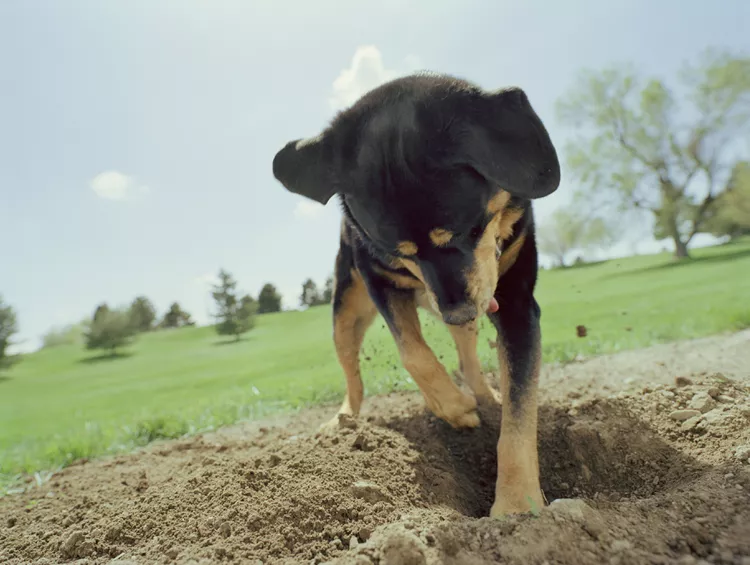
Why Dogs Bury Bones and Other Objects
If you give a dog a bone, he might bury it. Why is that? Learn about this burying behavior in dogs and what it means for your pet.
Reasons Why Dogs Run Away and How to Stop It
Dogs can escape, especially if they’re bored and not properly contained. Here are some techniques for stopping your dog from running away.